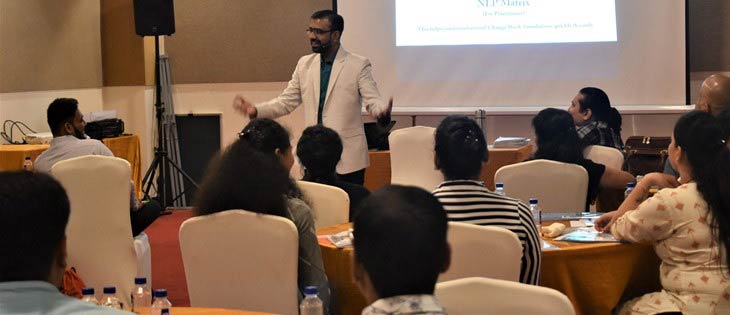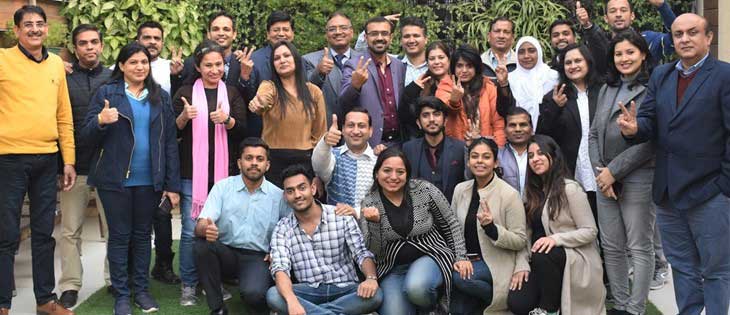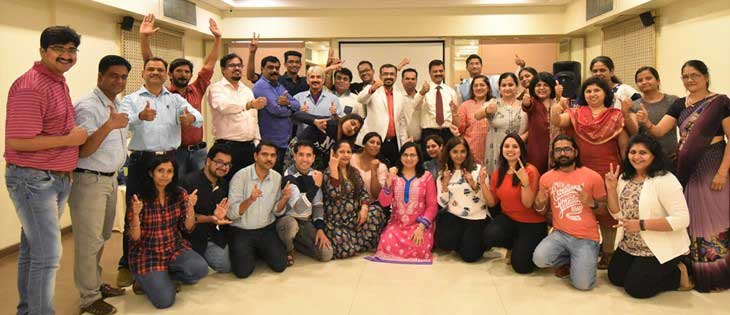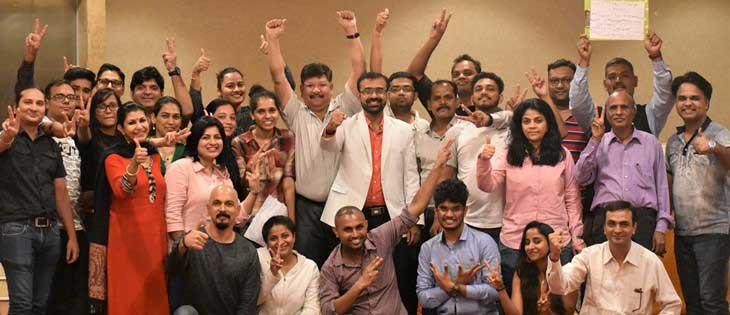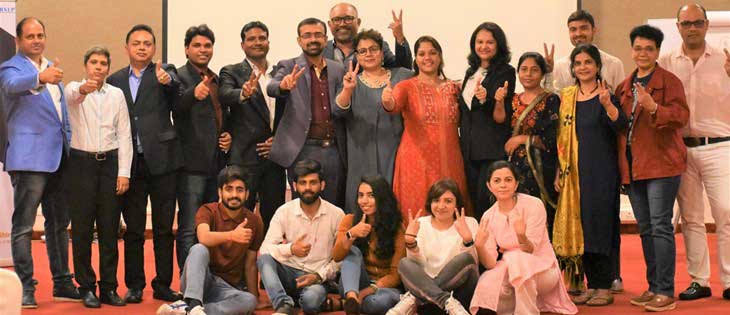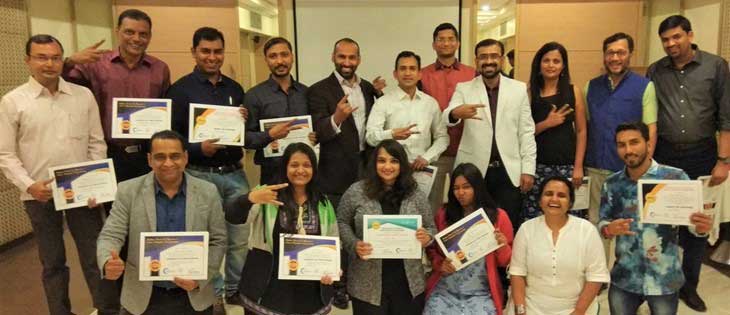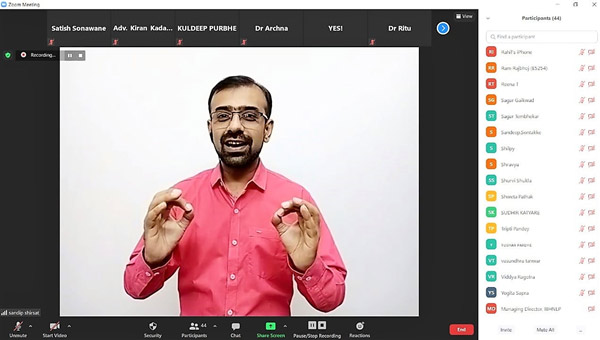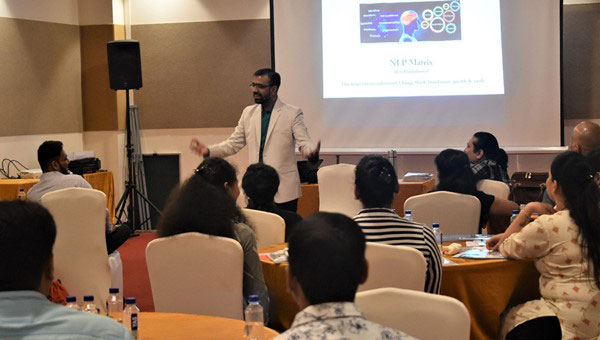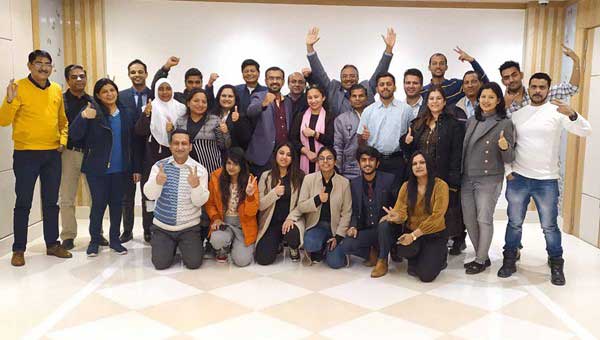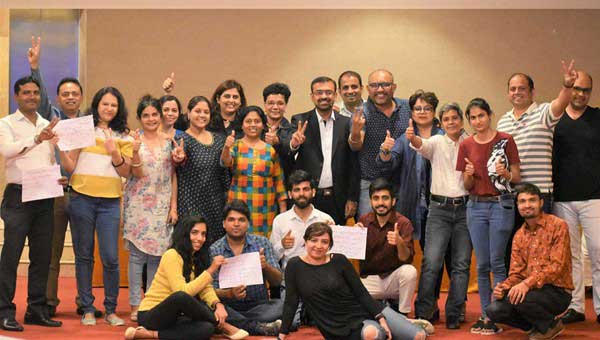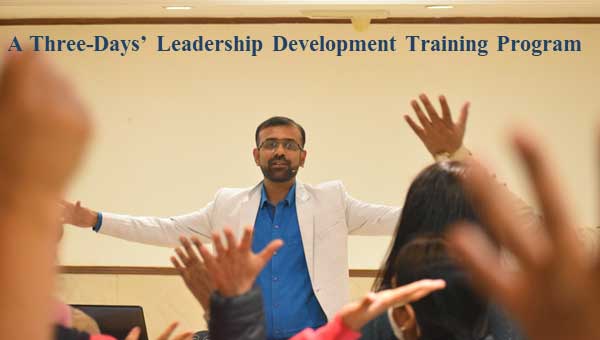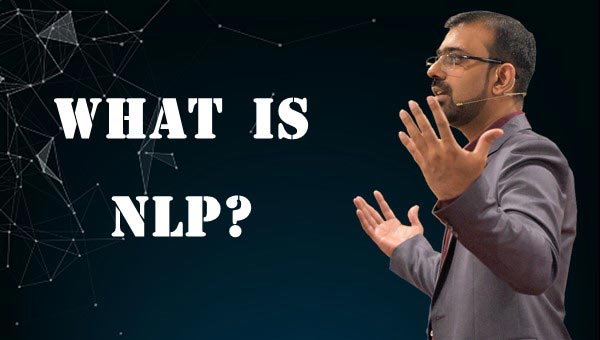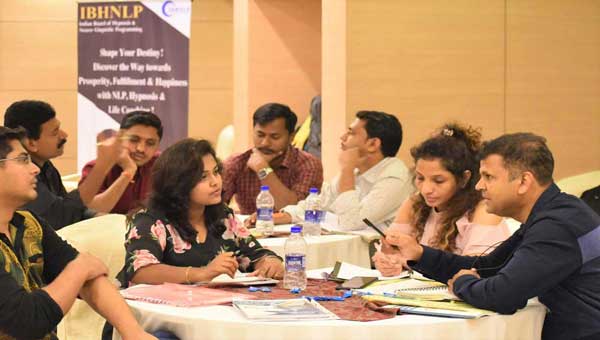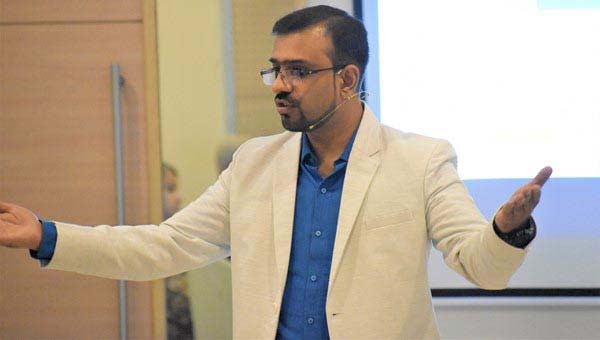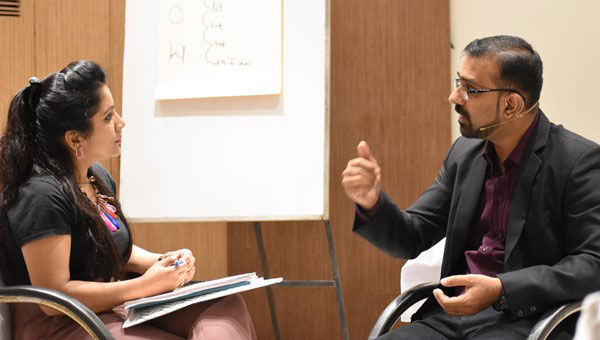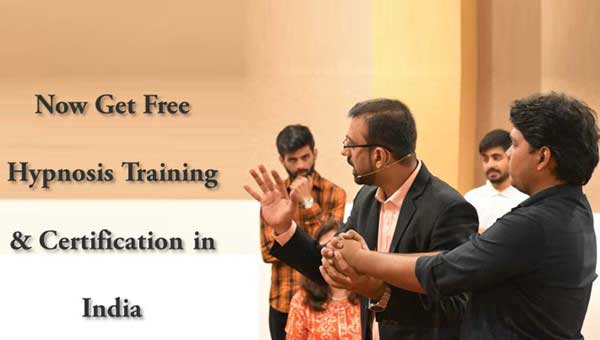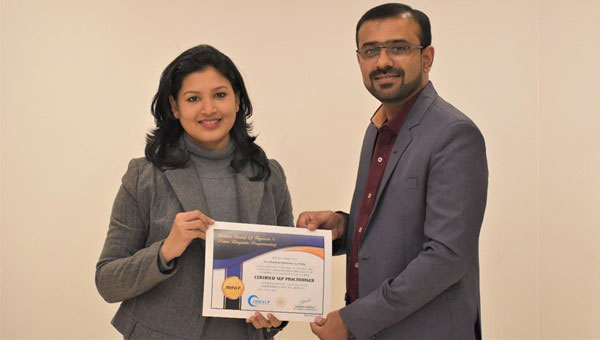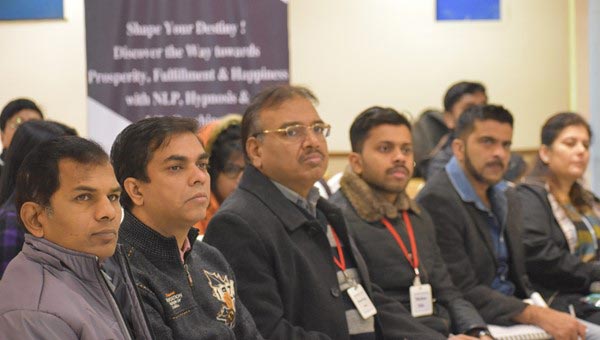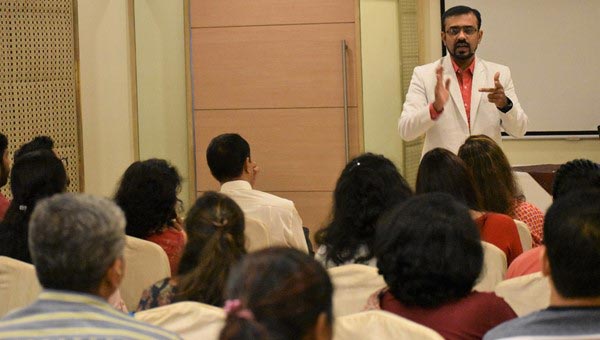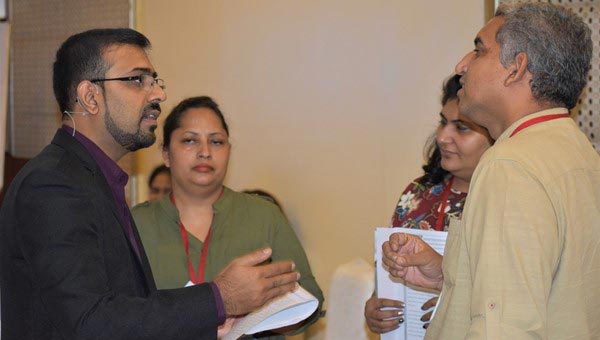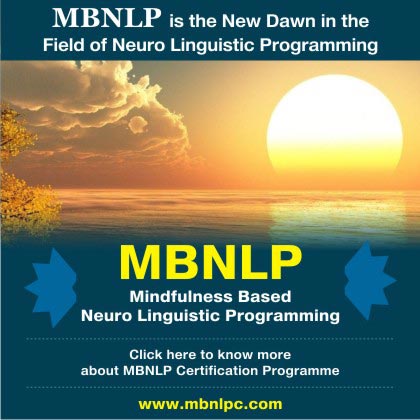What Qualification is required to learn NLP?
If you have the following questions in your mind, like
What is NLP?
How do I start learning NLP?
How long does it take to learn NLP?
Is NLP hard to learn?
How do I master my NLP skills?
Does NLP Really Work? etc., then you must read this article:
First, let’s discuss: what is NLP?
I would like to define NLP as a powerful tool to control and direct the brain’s information processing system and produce the desired outcomes in personal and professional life.

Now let’s decode this definition:
To understand this world around us, we need information about this world. Our senses (touch, sight, hearing, smell and taste) gather information about this world and send it to the brain. The brain processes the information and creates the internal representation (images, sounds and feelings) of the processed information. This internal representation in combination with physiology (movements in and of the body) produces thoughts, emotions or behaviour. Finally, these thought patterns, emotional patterns and behavioural patterns (habits) become our personality and they determine our destiny.
For example, a businessman lost 50 lakhs in his venture (external event). All information about this external event is gathered by his senses and brain processed the information. After processing, he created the internal representation. He started seeing himself as a failed businessman, a constant sound ‘It always happens with me. Whenever I try to do something big, it fails,' started haunting him. As a result, he started feeling sad, anxious and frustrated. Finally, he stopped taking action to recover his lost money, became a chain smoker and started getting angry at petty matters. After some time, this led to the creation of his personality and people around him started calling him pessimist, resentful and failure.
Now contemplate on one another example.
Thomas Alva Edison was one of the greatest inventors, the world has ever known. He generated nearly 1,100 patents and his inventions were foundational for many domains, from electronics to medicine to chemical research.
His one of the famous quote is ‘I have not failed. I’ve just found 10,000 ways that won’t work.’ And this belief was the foundation of his successful life. He failed thousands of times but retrieved soon and didn't stop till he achieved the desired outcome.
Here are two important questions we need to reflect upon.
1. What is the difference between the failed businessman and Thomas Alva Edison?
Fortunately, Thomas Alva Edison could better process the information as compared to the businessman. After failure (external event) the businessman reaches to the conclusion: ‘It always happens with me. Whenever I try to do something big, it fails.’ And Thomas Alva Edison responds, ‘I have not failed. I’ve just found 10,000 ways that won’t work.’ This better processing of the information (by Thomas Alva Edison) makes all the difference. And this 'information processing' is the key to all the success and failures.

2. Can we change this information processing style of the brain?
The brain works in patterns and once it picks up the pattern, it thinks in the same pattern. But with little efforts, anyone can change the habitual information processing style of the brain.
NLP basically talks about this information processing system of the brain and provides concrete tools and techniques to change it. In short, with the help of NLP, you can change the brain's automatic information processing style and this will lead to the creation of a New Personality.
That's why as I mentioned in the beginning, I would like to define NLP as a powerful tool to control and direct the brain’s information processing system and produce the desired outcomes in personal and professional life.
This can be done by the following most important tools of NLP:
1. Submodalities
2. Meta Model
3. Milton Model
4. Sensory Acuity Development
5. TimeLine
6. Anchoring
7. Swish Pattern, etc.
Now the second question: what qualifications are required to take the course?
If you are asking about educational qualification, then there is no specific educational qualification required. But the following things will help you to understand the concepts of NLP easily and quickly.
Remember the following things are not mandatory but will help you to grasp NLP concepts easily.
1. Awareness – As we discussed the definition of NLP earlier, NLP is a powerful tool to control and direct brain’s information processing system and produce the desired results in personal and professional life.
In short, in NLP workshop, we learn:
1. How our brain processes the information,
2. How to control this information processing and
3. How to produce desired results in personal and professional life.
Remember, most of the NLP tools work on our internal world or the way we process the information. That's the reason, 'awareness' about one's inner world/current information processing system will help anyone to understand NLP quickly.
But what do you mean by 'awareness'? The term 'awareness' is loosely used in day to day conversation. This term is used sparingly in spirituality domain as well. So let’s define what kind of 'awareness' is required to learn NLP. For our purpose, we need 'awareness' of our internal representation or submodalities.
For now onwards in your day to day life be aware of what happens inside when you experience happiness, sadness, irritation, excitement, etc. Specifically, observe 3 modalities:
1. Images (Visuals)
2. Sounds (Auditory)
3. Feeling (Kinesthetic)
Just be aware of what you are doing inside your brain. This enhanced awareness of your inner world will help you understand most of the NLP concepts comfortably.
At IBHNLP (The Indian Board of Hypnosis and Neuro-Linguistic Programming), before coming to NLP Practitioner Workshop, we provide an audio track which is the part of our pre-training course content. This 15 minutes’ audio track helps the participants to be aware of their inner world.
Click here to read more about the Preparatory Course of IBHNLP.
2. Reading Self-help books – If you have read and contemplated on the concepts explained in prominent self-help books, it will give you the added advantage. For example, you might have read '7 Habits of Highly Effective People' by Stephen Covey. It is a landmark book in the domain of self-help or personality development.
The first habit explained in the book is ‘Be Proactive’. Stephen Covey says ‘Being Proactive is about taking the responsibility for your own life. You can't keep blaming everything on your parents or grandparents. Proactive people recognize that they are "response-able." They don't blame genetics, circumstances, conditions, or conditioning for their behaviour. They know they choose their behaviour. Reactive people, on the other hand, are often affected by their physical environment. They find external sources to blame for their behaviour. If the weather is good, they feel good. If it isn't, it affects their attitude and performance, and they blame the weather.’
Now many people know the concept of proactivity but they keep on behaving reactively. So just by knowing the concept, can someone change his/her mindset from reactive to proactive? Most probably NOT.
And here comes the Neuro-Linguistic Programming! NLP helps you change your old programming or conditioning of reactivity and help you instill new programming of proactivity.
So if you have read and applied various concepts explained in self-help books, you can think various applications of NLP tools and techniques in personal and professional life.
At IBHNLP before attending to NLP Practitioner Workshop, we take care of all these aspects discussed above. To make our participants ready for a course we have carefully designed pre-training course content that includes books, audio tracks, questionnaires, workbooks, etc.
To conclude, there are no specific equational criteria required for enrolling NLP workshops but above mentioned things will be helpful if you want to master NLP skills.
.jpg)
